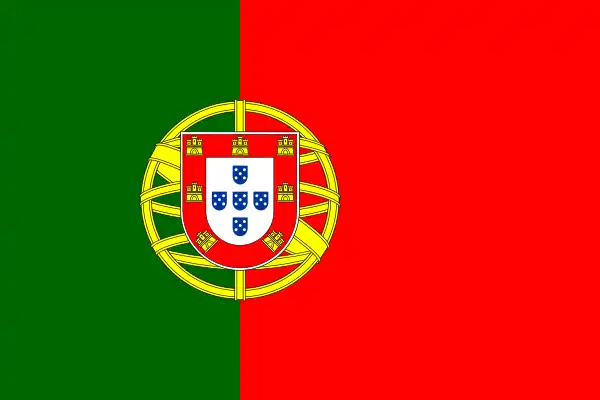Portugal - statistical data
Portugal is located in southwestern Europe, occupying a total area of approximately 92,090 square kilometers. It is bordered by Spain to the east and north, and the Atlantic Ocean to the west and south. The country has a diverse geographical landscape, including mountains, plains, and coastline, with the Tagus River being the longest river in the country.
With a population of around 10.3 million people, Portugal has a relatively homogeneous demographic composition, with the majority of the population being of Portuguese descent. The country has a high life expectancy and a low fertility rate, leading to an aging population. The largest city and capital of Portugal is Lisbon, located on the western coast of the country.
Land of Portugal
Portugal is a land of diverse landscapes and rich cultural heritage. From the rolling hills of the Douro Valley to the stunning beaches of the Algarve, this country offers a wide range of natural beauty for visitors to explore. The unique blend of Mediterranean and Atlantic influences can be seen in everything from the architecture to the cuisine, making Portugal a truly special destination.
In addition to its natural beauty, Portugal also has a long and fascinating history. From the Moorish influences in the south to the medieval castles in the north, the country is filled with historical sites waiting to be explored. The vibrant cities of Lisbon and Porto offer a mix of old-world charm and modern amenities, making them perfect destinations for travelers looking to immerse themselves in the local culture.
Whether you're interested in exploring the great outdoors or delving into the country's history, Portugal has something for everyone. With its warm climate, friendly people, and stunning landscapes, it's no wonder that Portugal has become an increasingly popular destination for travelers from around the world.
Climate of Portugal
Portugal boasts a Mediterranean climate characterized by hot, dry summers and mild, wet winters. This type of climate is influenced by the country's proximity to the Atlantic Ocean and the Mediterranean Sea. The summers in Portugal are typically warm to hot, with temperatures often exceeding 30 degrees Celsius. The winters, on the other hand, are mild and wet, with temperatures rarely dropping below freezing.
The climate of Portugal is also influenced by the Azores High, a high-pressure system that brings stable and sunny weather to the country during the summer months. This high-pressure system is responsible for the long periods of sunshine that Portugal experiences, making it a popular destination for tourists seeking a warm and sunny holiday. Additionally, the country's climate is also influenced by the Gulf Stream, a warm ocean current that helps to moderate temperatures along the coast.
Overall, the climate of Portugal is characterized by its mild temperatures, ample sunshine, and moderate rainfall. These conditions make Portugal an ideal destination for those looking to escape colder climates and enjoy a pleasant and sunny environment.
Languages of Portugal
Portugal is a country with a rich linguistic heritage, boasting several languages spoken throughout its territory. The official language of Portugal is Portuguese, which is spoken by the vast majority of the population. Portuguese is a Romance language, closely related to Spanish, Italian, and French. It is known for its complex grammar and diverse vocabulary, making it a fascinating subject of study for linguists and language enthusiasts alike.
In addition to Portuguese, several regional languages are spoken in Portugal. These include Mirandese, a language spoken in the northeast of the country, as well as various dialects of Portuguese that have evolved in different regions. These regional languages and dialects contribute to the cultural diversity of Portugal, reflecting the country's long history and unique regional identities. Despite the dominance of Portuguese, efforts are being made to preserve and promote these regional languages, recognizing their importance in maintaining Portugal's linguistic diversity.
Overall, the languages of Portugal reflect the country's complex cultural and historical landscape. From the official language of Portuguese to the regional languages and dialects spoken throughout the country, Portugal's linguistic diversity is a testament to its rich heritage and vibrant cultural identity.
Demographic trends
Portugal is currently experiencing significant demographic trends that are shaping the country's population dynamics. One of the key trends is the aging population, with a decreasing birth rate and increasing life expectancy. This demographic shift is leading to a higher proportion of elderly individuals in the population, which has implications for healthcare, social services, and the labor market.
Another important demographic trend in Portugal is the increasing urbanization of the population. As more people move from rural areas to urban centers, there are changes in housing patterns, infrastructure needs, and economic opportunities. This trend is also influencing cultural and social dynamics, as urban environments tend to be more diverse and dynamic than rural areas.
Overall, these demographic trends in Portugal are influencing various aspects of society and economy. Policymakers and planners need to take into account these trends when making decisions about healthcare, education, housing, and other key areas. Understanding the demographic changes in Portugal is essential for ensuring the country's continued growth and prosperity in the future.
Portugal interesting facts
Portugal, a country with a rich history and vibrant culture, is home to many interesting facts that make it a unique destination for travelers and researchers alike. One fascinating aspect of Portugal is its language, Portuguese, which is spoken by over 220 million people worldwide. This makes it the sixth most spoken language in the world and the official language of nine countries.
In addition to its language, Portugal is also known for its delicious cuisine, particularly its seafood dishes. The country's location along the Atlantic Ocean provides a bountiful supply of fresh fish and seafood, which is a staple in Portuguese cuisine. Some popular dishes include bacalhau (salted cod), caldo verde (kale soup), and pasteis de nata (custard tarts), all of which showcase the country's culinary expertise.
